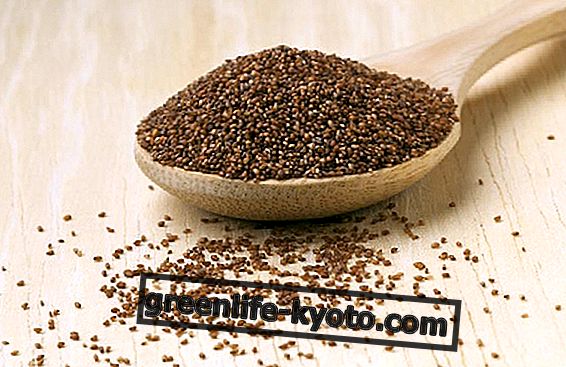By Eva Sacchi Hunter, Nutritionist
Enzymes are protein molecules that regulate the metabolic reactions of our body. Their main function is to activate and speed up the various biological processes essential to our survival. Scorpiamoli better.
>
>
>
Vegetable, rich in plant enzymes

Description of enzymes
Life could not exist without enzymes, in fact they are the only components capable of starting digestion and allowing food to be broken down into basic constituents small enough to be digested and absorbed by the body, processed by other enzymes or expelled as waste.
Each enzyme has a specific role : the one that breaks down fats, for example, does not affect proteins or carbohydrates. Enzymes are essential for the well-being of the organism and insufficiency, even of a single enzyme, can cause serious disorders.
We can divide enzymes into three categories:
- Plant enzymes - found in fruits, vegetables and other foods of plant origin, and begin digestion.
- Digestive enzymes - produced by the body to help digestion and absorption of food in the intestine.
- Metabolic enzymes - produced by the body to allow complex biochemical reactions.
All enzymes work by combining with a specific substance to transform it into a different substance and act without being modified.
What are plant enzymes
Plant and digestive enzymes have a similar but different function: plant enzymes begin digestion in the stomach and begin to act at least an hour before our body begins its digestion work.
When we eat, through chewing, we break the cell membrane and in this way the enzymes present in the food are released and begin to digest what we have ingested.
There are 4 groups of plant enzymes found in foods of plant origin:
- Protease - break the bonds of proteins by forming shorter amino acid chains
- Amylase - reduces polysaccharides in disaccharides - lactose, maltose and sucrose
- Lipases - they break the bonds of triglycerides, transforming them into individual fatty acids and glycerol
- Cellulases - responsible for the digestion of specific carbohydrates such as cellulose
Where are
Vegetable enzymes in their natural state are found in all uncooked or processed foods of plant origin . Cooking and food processing destroys most if not all the enzymes present and consequently our body must constantly produce new ones.
It is therefore good to try to introduce some portions of uncooked fruit and vegetables into the daily diet and perhaps from time to time sprouted seeds that are the richest natural source of digestive enzymes.
There are also special food supplements in general based on pineapple, papaya, kiwi, etc. which can be taken to help digestion. Enzymes derived from fungi are among the most stable and can not be degraded in the stomach, as well as having a broad spectrum of action.

Properties and benefits of plant enzymes
The main role of enzymes is to support digestion and are therefore indispensable elements for health, if, in fact, we eat a healthy diet, but we do not have the enzymes necessary to digest, we will not be able to absorb all the nutrients of food that we consume.
An example of a vegetable enzyme is bromelain, a protease present in pineapple that, in addition to breaking down proteins, helps reduce water retention and inflammation and can thus be useful in the healing process. Bromelain also functions as an antioxidant, as well as papain (present in papaya) and trypsin (a pancreatic protease). Bromelain and papain also support the body's ability to recover in case of hyper-fatigue.
In general, if under the advice of an expert you want to take supplements, it is advisable to take a combination of these enzymes, rather than just one, even if they are effective in both cases. Many believe that plant enzymes are the most effective, as they have the ability to better withstand high temperatures and acidic environments and act both in the intestine and in the stomach.
In particular, active enzymes have a fundamental role for our immune system, especially as they regulate inflammatory processes, as well as acting as antioxidants and antiallergenic.
Contraindications of plant enzymes
Unlike vitamin and mineral supplements, plant enzymes do not pose a risk of overdose and are not associated with toxicity symptoms and therefore tend to be among the safest supplements, however, in order to avoid potential problems especially in the case of interactions with other supplements or medicines, it is always advisable to consult an expert .













